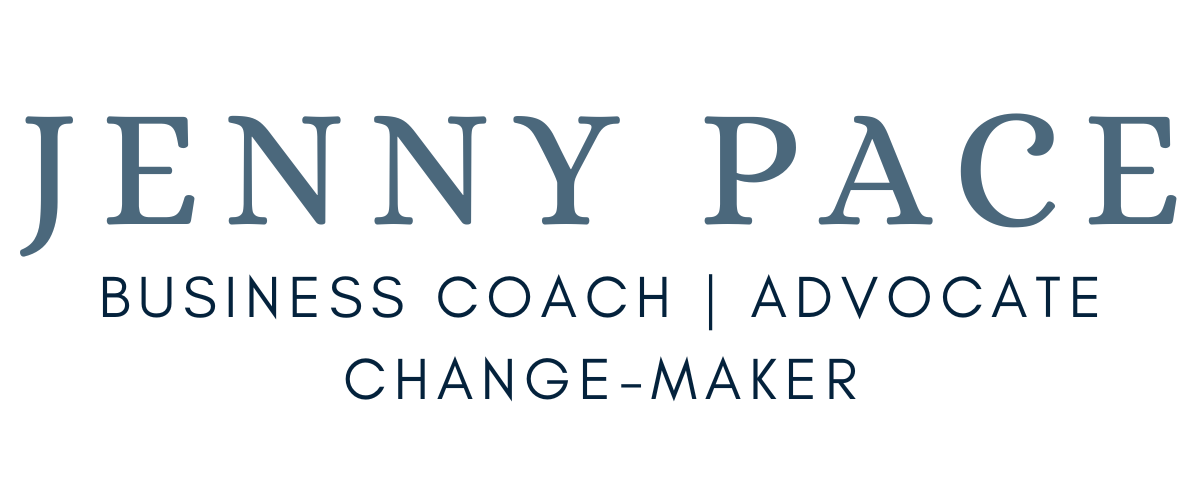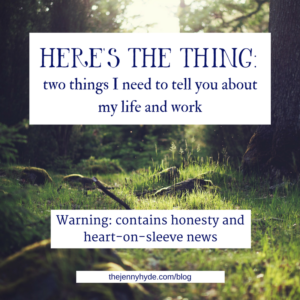Hey friends. How are things in your part of the world? How’s September feeling so far? I would truly love to hear how things are for you – isn’t that why we’re here? For connection and support?
I’ve been a business mentor and coach for over three years. I started off using “mentor” because it seemed to fit the blend of professional consulting and the encouragement I offer. More recently, I’ve been describing myself as a coach, because coaching skills have become a bigger part of my repertoire.
Two years ago, I completed Tara Mohr’s excellent Playing Big Facilitator Training, and I’m about to embark on some more coaching training with the wonderful Randi Buckley.
Now, there are plenty of coaches out there for all sorts of different areas. Health, life, creativity – you name it, and you can probably find a coach for it.
The thing I love most about coaching, and why I’ve adopted it to describe my work, is because I am totally committed to the idea that I’m here to empower my clients, not tell them what to do. It’s the belief that there isn’t a one-size-fits-all answer to the majority of business challenges – at least not one that addresses our own unique situations.
Coaching is not advice-giving.
In fact, I’m slightly allergic to advice. One my most hated things to see or receive? Unsolicited advice. It sparks all kinds of sarcasm in me! Because not only is this all about you, you’re not even thinking about me or what I really need.
Advice is what we (as the would-be advice giver) think is best. Even with the highest levels of empathy, advice is filtered through our unique and limited life experience. It doesn’t take into account all the things we don’t know about the situation, person or possibilities.
Often, advice also has the potential to be laden with “shoulds” and the expectation that someone trying to help now deserves us to follow through on their golden nuggets of advice. “Well, Sally told me to do that. She’ll be offended if I don’t at least try it.” Not helpful. Not empowering. (NB Sally isn’t a real person here.)
So I don’t give advice. I ask questions. I allow space to explore the situation. I offer support.
And I share experiences. This is subtly different to advice – and when I lead retreats and groups, it’s one I have to watch carefully. In business support circles, sharing experiences can be so valuable. “When I tried this, here’s what happened.” Positioning your experience like this makes it a piece of helpful information, but leaves the other person in total autonomy to make their own decision.
Sharing experience keeps it as your experience, not universal and unequivocal truth – which is often how advice is offered. You keep the other person free to choose the best decision for them.
It’s so easy to offer other people advice! Our care-giving nature wants to help. Of course we do! Especially if we feel like we’ve really nailed a particular challenge. And I don’t want anyone to feel their experience isn’t valuable: it is so incredible helpful and supportive to hear others’ stories that shine the light ahead – people who’ve overcome problems similar to ours or are further ahead.
But let’s keep them as stories, not as foolproof blueprints for how others should run their businesses or lives.
Our culture is so prone to giving advice. And right now there’s a whole industry of bloggers offering tips and suggestions to help others – and the intention behind that is wonderful. But in my own online experience, I find it essential to have a high awareness for click-bait blog titles promising neat and tidy advice that’ll solve all my problems. Because honestly? There’s no possibility that they can dive into the subtleties of my experience. And so many posts I see use fear or scarcity to encourage readers to click through. There’s nothing like someone trying to convince me I have a problem I didn’t know about!
A recent example: “7 ways to have more boundaries between work and life.” Now, this is a topic I care about a lot. But there’s no way that there are only seven ways to develop healthy boundaries. And boundaries are so powerful and complex – in my experience – that a quick-fix list isn’t going to tackle the values, energy, practice, and self-worth it takes to tend to them.
Yes, these kinds of posts can be taken as inspiration. For sure! But I have to practice awareness when I come across them so that I’m not sucked into believing that the list (and advice) is comprehensive or appropriate for me.
Here’s my critical awareness checklist:
- Does this post resonate with my experience?
- Do the stories shared help me to understand my situation (or the situation of those I care about)?
- Do I actually want the results this post is hoping to address?
- What positive inspiration can I take from this?
- Is there any fear, scarcity, manipulation or irrelevance I need to leave behind?
Here’s the thing: self-care around advice and online content
If you made it this far through the post, thank you! Thank you for listening and for giving your time to this post. I really appreciate it!
So what are the benefits to you? Well, I really want to share this idea that advice and feedback often tell us more about the person giving it than the person receiving it. In fact, Tara Mohr goes as far as to say that it only tells us about the person giving it. It’s always our choice whether we want to buy into their opinion.
(Meta moment: even as you read this post, you’re welcome to disagree with it or dismiss it if it doesn’t resonate with you!)
There is so much wisdom in the world, and the internet makes it more accessible. Hooray! But volume isn’t always the most helpful. Just because someone wrote a thing doesn’t mean it’s for me or going to help me. (And, most of the time, if there’s a click-bait, scarcity or fear based title, it’s already in the “nope” category for me.)
I’m learning to be more discerning about what I consume online so that I’m not feeding the depression or anxiety. It’s a practice – I have to remind myself every day. But today I offer this experience, and my opinion, to you too.
With love and much care
Jenny x
PS I’m planning to teach resilience and self-care around social media for business owners this October. There’s a teeny tiny bit of info here if you’re interested.


 A couple of weeks ago, I wrote
A couple of weeks ago, I wrote 
